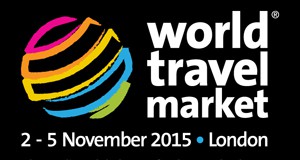 Many academics and professionals assume that there is little or no responsible tourism in Arabia. It is easy to assume that there is none. It is also lazy. The Arabia Travel Market is part of the WTM World portfolio that also features responsible tourism programmes in London, Cape Town and Sao Paulo. We took the same direct, honest and testing approach in Dubai that we take at the other shows.
Many academics and professionals assume that there is little or no responsible tourism in Arabia. It is easy to assume that there is none. It is also lazy. The Arabia Travel Market is part of the WTM World portfolio that also features responsible tourism programmes in London, Cape Town and Sao Paulo. We took the same direct, honest and testing approach in Dubai that we take at the other shows.
There is a great deal more going on in Arabia than most people assume. The United Arab Emirates is a hard environment for man to survive in, as is much of Arabia. The UAE gets infrequent and irregular rainfall, some 13 cm a year. Water is a major issue and fertility requires both desalination and the very careful management of water resources.
The UAE is diverse. Abu Dhabi, the capital, and Dubai are both commercial hubs with leisure facilities and attractions which make them attractive places to live and do business. Great places to live in are great places to live in and the UAE attracts millions of visitors every year. The MENA countries in the Middle East and North Africa are even more diverse, stretching from Morocco to Yemen and Oman. Morocco has a Responsible Tourism Charter and Oman has adopted responsible tourism as government policy since the 4th International Conference on Responsible Tourism in Destinations back in October 2010.

At this year’s Arabian Travel market, the session on environmental responsibility looked at the case for resource efficiency. The speakers talked about why it is the right thing to do for the planet, for our future, for staff morale and for the sector’s consumers. Consumers increasingly expect hoteliers and operators to have addressed these issues and to ensure the sustainability of the destination that attracts them. The financial case is now fully proven – in Sao Paulo and Cape Town GMs and hotel engineers have spoken eloquently and passionately about how reducing resource consumption transfers directly and positively to the bottom line.
In Dubai, Iftikhar Hamdani, Cluster General Manager at Ramada Hotel Ajman & Ramada Beach Hotel Ajman, talked about what the green agenda means for the guest experience, staff engagement and the bottom line. Rohit Salunke, Director of Engineering at Sofitel Resort and Spa at The Palm, Dubai spoke from an engineer’s perspective about the benefits of resource efficiency to the bottom line. These two properties are taking responsibility for reducing the negative environmental impacts of tourism, and there are many more in the MENA countries, but there is much more to be done.
Governments are also pushing the sector to take responsibility – Morocco has a responsible, fair and sustainable national policy; Oman sponsors the World Responsible Tourism Awards and is asserting leadership in responsible tourism in the region. And in Abu Dhabi and Dubai there has been a government push on green building. In Dubai, HE Helal Saeed Al Marri, Director General of the country’s Department of Tourism and Commerce Marketing, argues the tourism is one of the major pillars of the Dubai economy and that responsible tourism is an important contributor to the diversification and greening of Dubai’s economy.
There are plans to create an Arabian Centre for Responsible Tourism as part of the International Centres of Responsible Tourism movement, its inaugural meeting took place during Arabian Travel Market. In the panel on What Responsible Tourism has to offer the MENA Region we heard from Nada Roudies Secretary General in the Ministry of Tourism about why Morocco is committed to it; from Ryan Ingram about why it makes sense for Banyan Tree Al Wadi to create a natural heritage area reserve; and from Adam McEwan of Platinum Heritage with their heritage safaris about why responsible tourism is at the heart of their business.
Responsible tourism will be on the programme again at Arabian Travel Market in 2016


